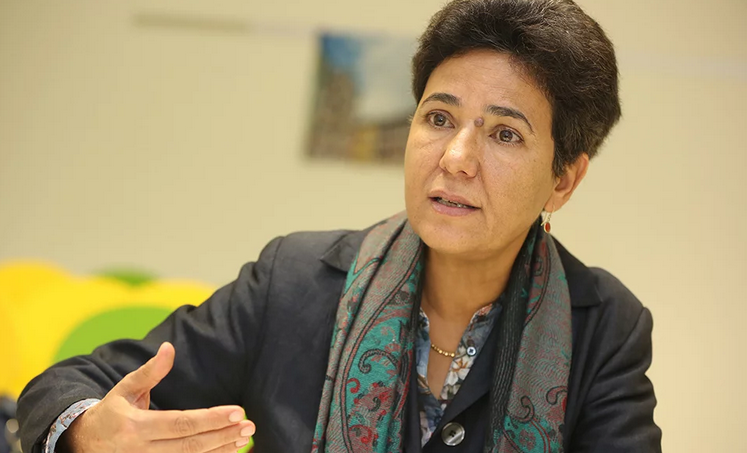- Joined
- Mar 11, 2013
- Messages
- 15,048
- Points
- 113
Saïda Keller-Messahli writes in Neue Zürcher Zeitung that Western feminists who downplay the Islamic religious factors of domestic violence are doing victims no favors

Switzerland is confronting a surge in domestic violence after 15 femicides were recorded in the first half of 2025. In a commentary for the Neue Zürcher Zeitung, Swiss-Tunisian scholar and political Islam activist Saïda Keller-Messahli said that offenders disproportionately often come from Muslim countries and that the role of Islam in shaping attitudes toward women must be openly acknowledged.
“Reports of men killing their wives, ex-partners, or daughters because they don’t behave as they wish are increasing,” she noted.
She cited research by forensic scientist Frank Urbaniok showing that Afghans are reported for serious violent crimes five times more often than Swiss citizens, Moroccans eight times more often, and Tunisians nine times more often.
“The disproportionate crime rate has a lot to do with cultural influences. It is about how violence is dealt with, the image of women, or the role of the rule of law in these countries,” Urbaniok told the same newspaper in April.
“I have been dealing with criminals for 33 years and have seen thousands of cases at close range. That’s why I know how strong and relevant these imprints can be. Sometimes, they persist for generations,” he added.
Keller-Messahli argued that this pattern extends to domestic violence cases and is rooted in Islamic teachings and socialization.
“Socialization plays a crucial role in determining an individual’s relationship with society,” she wrote, adding that in the Islamic context, this is strongly influenced by religious norms drawn from the Quran. She said Islamic laws regulate most areas of life in Muslim countries, often in ways that conflict with human rights and actively promote discrimination. She cited forced conversions for marriage, religiously sanctioned child marriages, and restrictions on adopted children as examples.
Keller-Messahli argued that Islamic teaching places men above women. Quoting Islamic scripture, she wrote, “Just as men have rights over women, so women also have clear rights over men. The rights of men over women are a step higher.” Boys, she said, grow up with privileges that instill in them a sense of entitlement, power, and an acceptance of violence as part of masculinity. According to her, this dynamic helps explain why domestic violence is widespread in Muslim societies.
She cited Arab Barometer data showing Egypt, Lebanon, and Morocco among the countries with the highest levels of domestic violence, noting that “many children have also experienced violence.”
Keller-Messahli warned that questioning Quranic passages that legitimize violence is taboo in many Muslim communities, with creative interpretation of scripture often branded as heresy. As a result, discrimination and patriarchal control become normalized and passed down through generations.
“Only those who manage to critically examine their socialization and gender-based privileges and openly distance themselves from unjust rules and structures can contribute to improvement,” she wrote. But for Muslims who take this step, she added, the social cost is often high.
She concluded that Western societies harm rather than help when they refuse to confront the cultural and Islamic factors behind domestic violence. “We in Western societies do no one a favor if we downplay or even deny the religious and cultural factors of domestic violence, as still happens far too often, especially in feminist circles,” she said.
